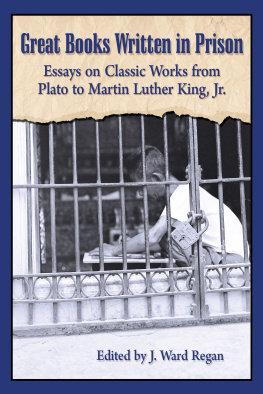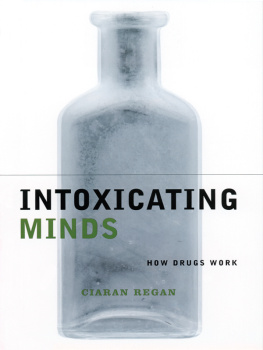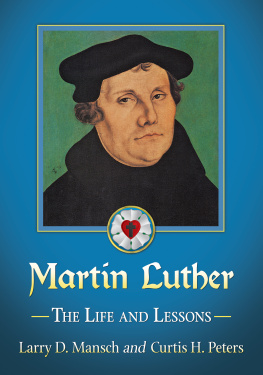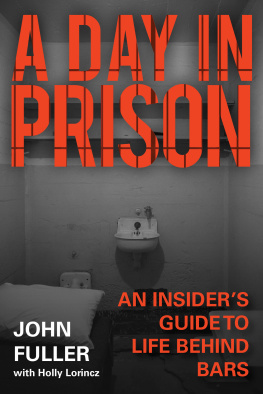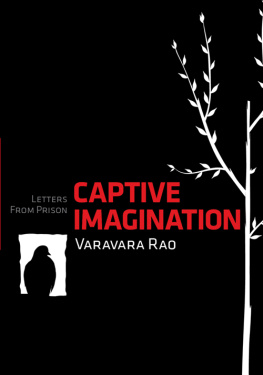
Great Books Written in Prison
Essays on Classic Works from Plato to Martin Luther King, Jr.
Edited by J. Ward Regan

McFarland & Company, Inc., Publishers
Jefferson, North Carolina
LIBRARY OF CONGRESS CATALOGUING DATA ARE AVAILABLE
BRITISH LIBRARY CATALOGUING DATA ARE AVAILABLE
e-ISBN: 978-1-4766-1970-5
2015 J. Ward Regan. All rights reserved
No part of this book may be reproduced or transmitted in any form or by any means, electronic or mechanical, including photocopying or recording, or by any information storage and retrieval system, without permission in writing from the publisher.
Cover image Thinkstock
McFarland & Company, Inc., Publishers
Box 611, Jefferson, North Carolina 28640
www.mcfarlandpub.com
To all of the prisoners of conscience and
victims of political violence throughout the world.
Acknowledgments
I would like to thank the books contributing authors for their hard work and support in putting this book together. Thanks also to my research assistant Sarah Dunn and Lawrence Krauser for his editing work. I would also like to acknowledge the support of the Liberal Studies program at New York University through every stage of this project.J.W.R.
Preface
J. Ward Regan
Great Books Written in Prison is a survey of culturally and historically important books written by prominent outspoken political or artistic figures while incarcerated or in exile. Gandhi shares this distinction with Martin Luther King, Jr., as do Hitler and Cervantes. The essays were written by faculty at New York University, and each looks at a different book and provides a short biography of the texts author and a description of the conditions surrounding the books writing as well as a critical examination of the work and its impact. The essays reflect the diverse academic expertise of the authors and balance the different elements accordingly.
Throughout human history societies have erected ever more complex systems, both mental and physical, to help give meaning to their lives. The creation of these systems of order could be seen as an attempt to retool ourselves to create a fixed philosophical or moral perspective on life. The establishment of social hierarchy, the creation of laws and the subsequent emergence of institutions to keep the status quo has been an ongoing process throughout human history. The penal and criminal justice systems that developed can be seen as facilitating scapegoating for social problems. These systems allow for the definition, identification, and neutralization of those deemed a threat to the proper functioning of whatever the social order is at the time. This often leads to the conflation of the ideas and enforcement of legal and moral standards.
To understand how varied the categories legal and moral can be, look at history: the specifics have changed, but not the intent. The carceral system has been used not only to punish crime but also for moral compliance in the case of enforcing social norms on sex, relationships, and intoxicating substances. There is also the ongoing problem of the enforcing authority and its agents violating the laws and structures they are charged with administering.
Contents of the Book
The chronological arrangement of the essays helps shed light on historical and contemporary discussions about the appropriate amount of force and violence and who it is used against. For the most part, history does not look kindly on the incarcerators in this book. The more the authors are respected for their actions and courage, the more one sees the opposite in the political powers who punished them. This should put citizens on alert now about their own governments actions and rationales.
Post9/11 society has seen the global emergence of a new security state as governments (and private corporations) spend untold resources on monitoring, policing, and combating people or groups, both foreign and domestic, that are classified as threats. The criteria for being considered a threat are as vague, opaque, and flexible in favor of those in power as they have ever been.
Law, Order and Violence
What really is the job of the police and the military apparatus? To serve and protect the citizenry from harm or to serve and protect the authority and individuals who run the institutions of power, law, and violence? Protecting the social and political status quo is not necessarily the same as protecting individuals and their lives and rights. We have learned that governments can unfortunately be the greatest purveyors of unjust and indiscriminate violence. Many of the writers covered here represent powerful examples of this phenomenon.
The authors in this book collided with the ruling power or government of their time, leading to all sorts of personal and historical ramifications. Most were already well-known figures, so the likely intent of their incarceration or exile was to remove them from public view and influence. In the process some were also targeted for physical torture and execution. These actions can be effective in the short term but sometimes blow back significantly. One of the most famous failed executions in that sense was a small state-run affair against a small-time agitator in a far-off province of a powerful empirethe crucifixion of Jesus of Nazareth.
In surveying the breadth and diversity of the authors and the books contained in this volume, we are confronted by one of the central issues in history: power. Power seeks avenues and opportunities for its expression and exercise. Institutions behave in ways that tend toward self-preservation. Once political authority began to be dispersed among institutions, there was something significant to protect. The establishment of these institutions usually leads to the creation and discovery of threats to their political authority, which must be contained or eliminated if possible. The ruling entities of the world, along with their organizing principles, show the desire that circumstances stay generally static. Unfortunately for them, conditions and ideas do not remain fixed. History is a kinetic event, and the authors here have contributed much to its dynamism.
How This Book Came Together
This project started in 2006, when I realized several of the books I taught in my classes had similar origins. The authors of the Great Books (and the books themselves) were often seen as a threat in one way or another during their own lives, and it was not until the rest of society caught up with their ideas that they were properly recognized as trailblazers and not troublemakers. After some early research and writing, I soon realized I could not sufficiently cover the number of texts necessary for a whole book on my own, so the project sat on a shelf. It was several years later, while listening to a colleague give a talk on an author included this book, that I had the answer as to who could write all the different chapters necessary, and I did not have to go far to find them.
As the editor of this collection, I was lucky to work with such a talented group of faculty who are experts in their fields and teach in the Liberal Studies Program at New York University. The program has a Great Bookscentered curriculum that emphasizes undergraduate pedagogy, critical thinking, and communication skills. We have all taught some of these texts in our classes at one time or another and spend a great deal of time discussing how to best teach these types of books. As teachers we cannot but enjoy the opportunity to engage our students in the big questions about individual and social rights and resposibilities that the Great Books always elicit.
Next page
